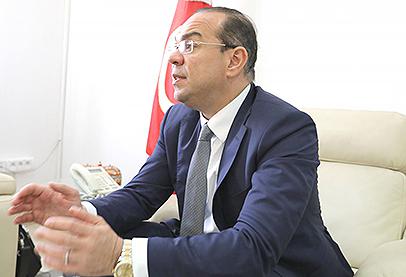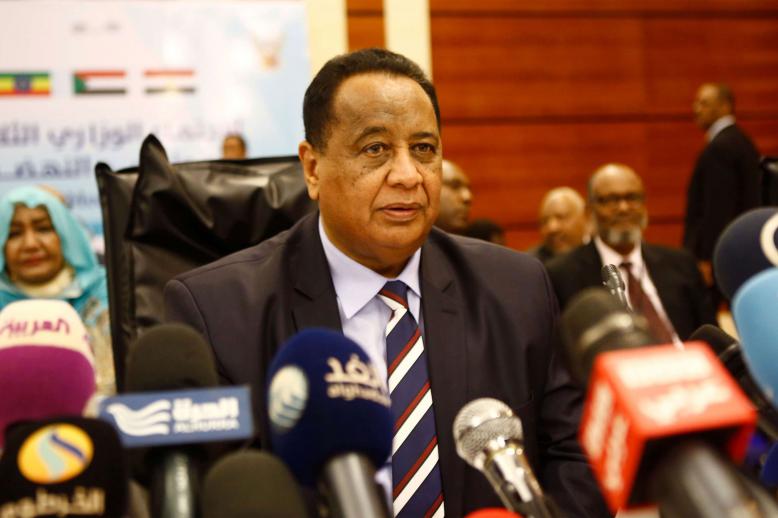Tunisia to become second African country to legally prohibit racial discrimination

Tunisia will become the second country in the 55-member African Union, after South Africa, to pass an anti-racial discrimination law, Mehdi Ben Gharbia, the country’s human rights minister, said.
The legal initiative reflects the attitude of a growing number of Tunisians who say skin colour should be no issue in a country that, for centuries, has been a mosaic of diverse cultures, religions, races and ideas.
In January 1846, Tunisia was the first Arab country to ban slavery.
“The first step to tackle a problem is to identify and recognise it,” said Ben Gharbia, the minister in charge of the government’s relations with Constitutional institutions, Civic society and Human Rights.
“Every Tunisian will tell you that he has no problem with the black people,” he added in an interview with The Arab Weekly.
Tunisians of darker skin tones and other black Africans in the country face situations doubly depressing as there is no law to punish racial discrimination, rights groups contend.
“Racism in Tunisia is latent. It is not distinct, not discernible by most Tunisians,” said Jawhar Ben Mbarek, a law professor at Tunis University and a civil rights activist.
Black Tunisians who suffer racial abuse and complain to the police are often helpless because of the silence of the law.
When Jamel Ksiksi, a customs agent, was beaten by a hotel worker in the summer of 2016 in the coastal town of Mahdia, he complained to police. However, authorities said they found no legal ground to prosecute the case as a form of racial discrimination. His relatives and friends staged a street protest in Ksiksi’s hometown Medenine to alert authorities about the racial abuse.
The assault on three black African students who were wounded in a knife attack on Christmas Eve in 2016 in a train station in Tunis gave more ammunition to rights activists, who urged the government to end the legislation vacuum and crackdown on racial discrimination.
“In reality, the idea of the draft law came before the attack against the black students. Some activists thought there is a correlation between the two,” said Ben Gharbia.
“When Tunisian girl Sabrina was verbally abused on the main Habib Bourguiba Avenue in Tunis in 2016 and went to the police to complain and she was turned back because of the lack of specific law, I invited her to my office to apologise on behalf of the government,” he said. “The process of drafting and discussing it began after Sabrina’s incident.”
Ben Gharbia suggested that Tunisia will have an anti-racial discrimination law before the end of May.
“It has been submitted to the parliament and will be adopted in the next few weeks,” he added.
Maha Abdelhamid, an activist from the Association for Equality and Development (ADAM), said: “Racism against black people in Tunisia has always existed but it was a taboo and we could not say before that racism existed.”
She and other rights activists say that 15% of Tunisia’s population of 11 million are black, though no official data based on skin colour exist.
“Activists give estimates but we have no figure as we have a population with a beautiful blend of colours. We have a mixture of colours that makes it difficult to tell if Tunisians are black or white or in between,” Ben Gharbia said.
“The state is treating its people and its guests as equals.
Citizenship is the only criterion for laws and policy. Since independence, Tunisians have been equal before the law.”
However, the identification and characterisation of the racial discrimination offence in the law have been lacking.
“Today, many Tunisians, most of them with good intentions and good faith, say that we have no problem with racism but the first act to tackle the issue of racism is to recognise it,” he added.
Ben Gharbia said “remnants” of the country’s history, when slavery used to be accepted, were still alive in the memory of many people.
He cited anecdotal evidence from the popular imagination about “silent racism,” including when Tunisian relatives would put a black girl in front of a newlywed Tunisian bride to “ward off bad luck.”
Many Tunisians sometimes use pejorative terms such as a “kahlouch” and a “wassif” to identify a black person by the colour of his skin.
Perhaps, the most evidence about such a “pervasive and silent racism,” social critics say, is the absence of television stars of black skin, a political leader with black skin or a famous, wealthy businessman of black skin.
There has been no state policy since independence to legitimise racial discrimination. “Racism is not entrenched in Tunisia because the state had never had a discrimination policy against its citizens in contrast to old democracies in the world which continued to the 1950s and 1960s with racial laws,” said Ben Gharbia.
He said new legislation was aimed at advancing rights and freedoms in Tunisia, where citizens and their guests from other parts of the world feel equal.
“I have the deep conviction that history goes towards one direction, that of the equality between people whatever their race, sex or ethnic origin,” Ben Gharbia said.
“This draft law stems from this vision,” said Ben Gharbia, who was the first parliament member to defend a law proposal about the equal rights between women and men in heritage.
“The progress in rights and freedoms has an influence on economic growth and social progress. When Tunisians feel free and equal they contribute more and better for growth,” he argued.
The draft law provides for prison terms of up to three years if convicted of racial discrimination offences, including propagation of racist ideas.
Lamine Ghanmi is a veteran Reuters journalist. He has covered North Africa for decades and is based in Tunis.
This article was originally published in The Arab Weekly.




